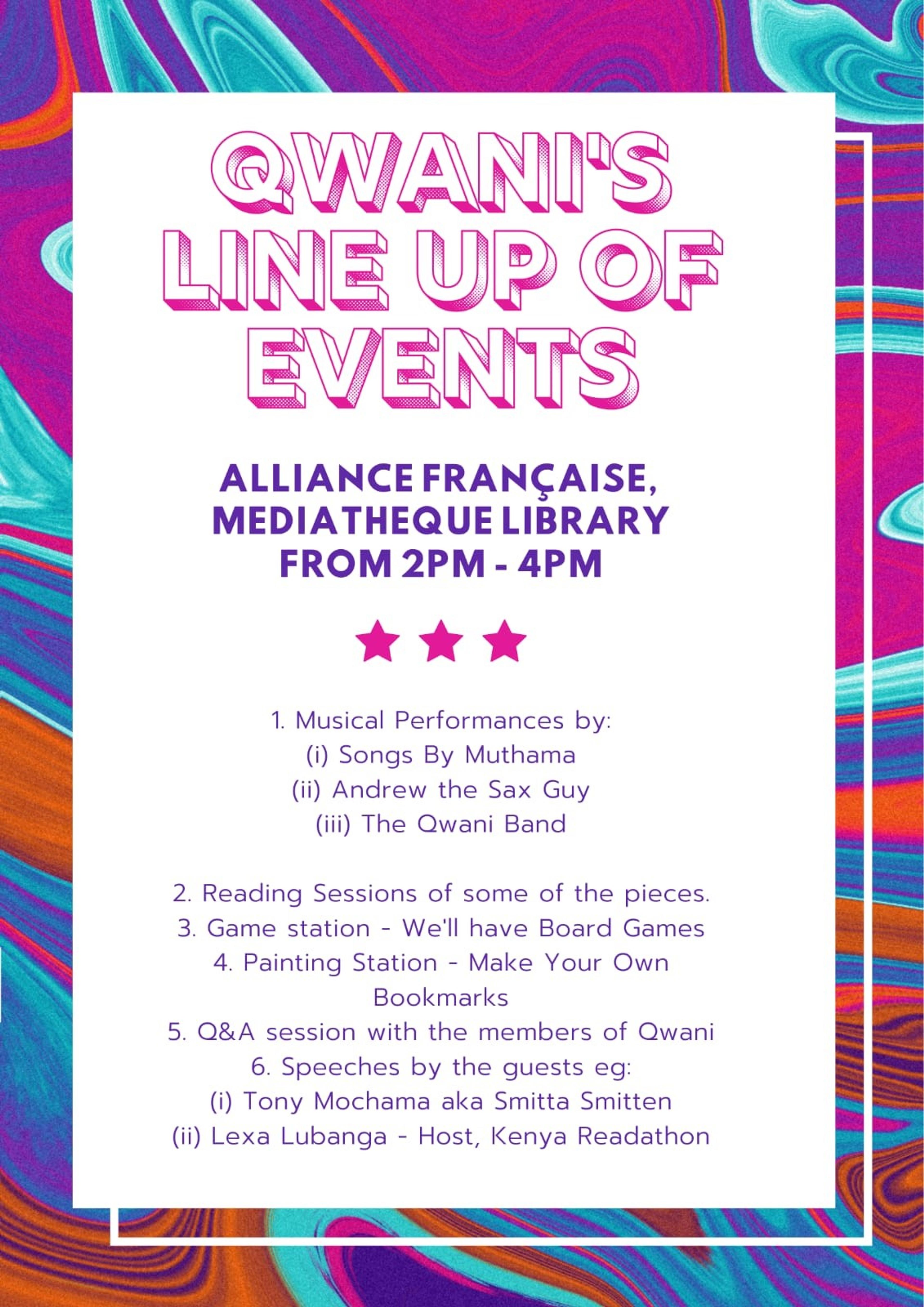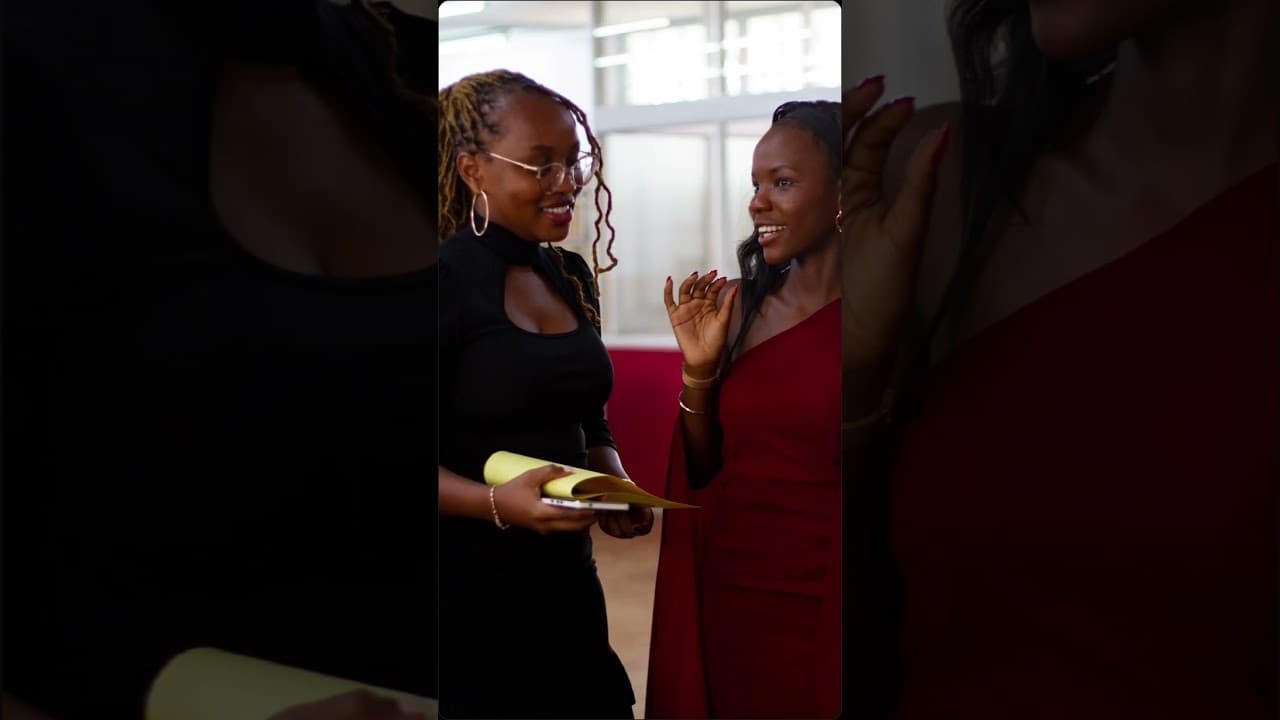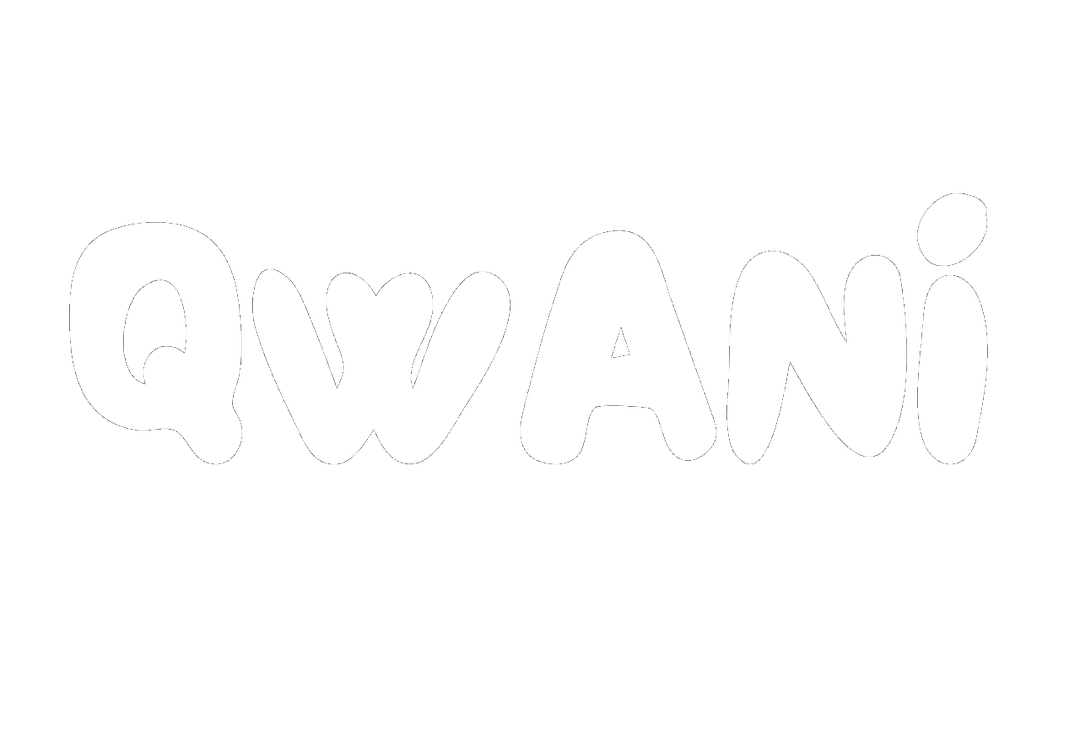How It Started

How Qwani Started
The month is August 2022. Kenya has gone on recess to pave way for the General Elections. Everyone is hooked to the screens to follow the tallying. Everyone, of course, except the Gen-Z. We all know the rumor that has always been peddled that the Gen-Z are quite apathetic, and don’t really give a shit about politics. I mean, 8 million of them decided to spend the Tuesday of August 9th as their holiday, didn’t they? Well, whether or not that was true, is neither here nor there. For the purposes of ‘agenda’, let’s give it the benefit of doubt.
As election results are being keyed in at the Bomas of Kenya, two kids, Boy A and Girl A, are learning how to play the keys at Boy B’s mansion at Garden Estate (some nouveau-riche estate along Thika Road). On this particular day, Girl A decides to take out her phone after the class, and shows Boy A the blog she’s been writing. The blog contains random musings which Girl A writes whenever she gets spasms of wisdom. To Boy A, she says that she would love to push her writing to the next level, but she is not confident that this is possible because of how unconventional her writing is.
Boy A takes her phone, goes to the search engine and types ‘Smitta Smitten articles’ then hands the phone back to Girl A to check them out. She stares at the screen for a while, clearly in confusion. “How does he publish Sheng articles in the Standard newspaper? I thought newspapers only publish formal stuff?” she asks. “Well, if he’s managed to do that, what makes you think your unconventional stuff doesn’t stand a chance?” Boy A responds.
That night, as Boy A scrolls through Twitter (nobody calls it X), he comes across a viral tweet that contains a link to a WordPress blog. Curious about why everyone is interested in the blog, he just clicks the link (we thank God that it was neither a porn link nor a hacker, for we wouldn’t be here anyway). The blog in context is titled ‘The one with Nairobi’s seven deadly sins’ written by Girl B.
He reads through the blog and is quite mesmerized. He hadn’t read work so good before. As he scrolls past the article and into the comments, he comes across more WordPress profiles, and as he clicks on each one of them, he discovers the profundity of their blog-posts. The boy can’t believe how it may be possible that there are such great young writers in Kenya. How hadn’t he discovered them before? And how is it that they aren’t popular if, evidently, they are so good at their craft? He makes it his quest to help them achieve that.
The next day, Boy A heads to the supermarket to purchase soap. The thing about purchasing a solitary product such as a bar of soap, is that they just wrap it in a newspaper and hand it over to you. Ordinarily, the boy would tear open the newspaper and take the bar of soap, but on this particular day, he decides to unwrap it carefully. The newspaper, dated 11th April 2021, carried an article titled – ‘The Rise and Fall of Kwani? – An insider’s story’.
Boy A reads through the story slowly and carefully, completely oblivious of the urgent chores that had guided him to purchase the bar of soap. The article lights up a bulb in his mind. For those who may be too young to be familiar with Kwani?, this was a literary magazine started in 2002 by the likes of Binyavanga Wainaina, Yvonne Adhiambo Owuor, Ali Zaidi, Tony Mochama etc in order to ‘foster Kenya's and Africa's intellectual, creative, and imaginative resources through strategic literary initiatives’
These ‘strategic literary initiatives’ included publishing magazines that contained new journalism, fiction, experimental writing, poetry, cartoons, photographs, ideas, literary travel writing, and creative non-fiction. Through this, Kwani? went on to be the most influential journal to have emerged from the Sub-Saharan Africa, propelling the careers of numerous writers (among them Chimamanda Ngozi Adichie).
Boy A had a copy of Kwani? 3, which he had bought years earlier because he liked the cover (whoever said ‘don’t judge a book by its cover’ was wrong on this). He skimmed through the book and definitely liked it (by this time, he had completely forgotten about this chore). Having had an earlier conviction to help young writers, he decided to contact Kwani? and check them out because they had achieved the same goal as he was pursuing.
The person on the other side of the line was Mike Mburu, who was Kwani?’s Sales & Distribution Officer. He goes on to explain to Boy A more about the fall of Kwani? and why it is impossible to revive it because it has so many skeletons in the closet. Boy A, therefore, is left with no other option but to start his own organization if he is to achieve the same goals. Before doing so, he contacts the writer of the original article, Tony Mochama, and asks him how Binyavanga Wainaina went about in establishing Kwani?
Mochama explains to Boy A that Binyavanga had just won Ksh 1.2 million from the Caine Prize, and that’s what he used to fund the whole project. Boy A is clearly dumbstruck, for he, a teenager, has no such money. He decides to check out who else funded Kwani? and finds the name of . . . wait for it . . . Ford Foundation! (Ruto has criminalized these folks so much that I no longer see them the same way). He tries reaching out to them with a proposal, which they say they’ll respond to in 45 days. One and a half months.
Boy A goes out on a date with Girl A to a cool skate park secretly tucked in the middle of an estate somewhere in Loresho (most of you might be surprised to find out that we have American-like skateparks in Nairobi). There, he discloses his plans to Girl A, who aggressively nods to everything, including being a co-founder of this new literary organization.
Having the idea of what the organization will constitute, Boy A sets out to find like-minded people who might help him achieve his goal. The goal again? To provide a platform to publish young writers so that they may get more popular in the literary world.
Part 1 of this story ends there.
Avengers Assemble?
The month is September 2022. It’s a random Sunday, and Boy A is at K1, watching F1 with his Day 1s. He has a particularly interesting circle here. One of them, Boy C, is a student of Medicine at the University of Nairobi. The other guy is a student of Mechanical Engineering at the University of Nairobi too.
Boy A met Boy C on Twitter during the lockdown back in 2020. Both were Science nerds, and they bumped into each other in a tweet deliberating about the Chandrasekhar’s limit (maximum mass of a star that determines whether it’ll die off as a white star or explodes in a supernova and forms a black hole). From then on, they became best buddies, discussing astrophysics on weekdays and watching Formula 1 on weekends. Interestingly, Boy C resembles an able-bodied Stephen Hawking. Remember son: there are no coincidences in life. When Boy A told Boy C about his plan to start a literary organization, he agreed.
Then, Boy A remembered two of his former high school classmates, Boy D and Boy E, who made it their vocation to write poems to girls whom they had a crush on. However beautiful those poems were, they kept getting rejection letters. This did not deter them, for they went on until they completed high school. But even then, their poems hadn’t bore any fruit. And so, instead of letting their creativity go to waste, Boy A decided to approach both of them to join his literary organization, to which they both agreed.
Before you ask about gender equality, let us mention that there were three more girls in this story, as well as two more boys, but they ended up quitting for personal reasons. One other girl was added later to the team.
As Kool & The Gang sang, time to ‘Get down on it!’
The month is October 2022. The Avengers decide to meet at the rooftop of the Qwetu Parklands (it’s actually in Ngara) to discuss the prospects of their organization. The particular roles are broken down, and duties assigned to everyone. Each of the people submit their works for consideration.
Kizuri chajiuza…
The month is November 2022. The team has discussed how their first project – an anthology – would look like, and so, they decide that it’s time to do a public call-out for submissions. The target – young writers who write on their personal blogs. You see, blog writers, averagely, only have five regular readers, to whom they send the links to their blogs every time they publish something. It is, evidently, harder to grow beyond that circle, unless what you’re writing is too good.
Therefore, the goal with this anthology was to bring together numerous blog writers and have them published in a book, such that, once Writer X sells the book to his/her five blog-readers, they can get to know about Writer Y, whom they previously knew not about, yet whose work is so good that they wonder where he/she had been all this time. That was the goal of the literary organization.
Thus, they created a Twitter account where did the call on Twitter (as well as telling some people directly) and an email address where the submissions would be received.
There was some backlash on Twitter by some veteran writers who were demanding for the credibility of these kids. Others were asking how much they were paying for the submissions. Others were demanding surety that their pieces won’t be ‘intellectually’ stolen. All the kids did was to beg people to believe them.
37 people did and sent in their submissions. And all 37 of them were accepted. In the end, there were 65 pieces from 37 different writers, in various genres such as Poetry, Short Stories, Essays (Philosophy & Science), Reviews (Film, Music & Art), Plays, and even Sheng’.
Kaa Ridho. Kaa Chonjo. Apana Kaa tu Fwaa
The month is December 2022. The team now has all the manuscripts at their disposal. The editorial team settles down to work on them. The illustrator settles down to create the cover art. They come up with the order in which the pieces will follow each other. They also create the final book layout.
New Year Resolutions
The month is January 2023. The book is 90% ready. The team decides to now work on marketing it. They dedicate each day of the week, for the next 37 days, to making noise about each particular piece. That way, they create some tension around the book. People ask, “What book is this called Qwani that has published my friend? I’m so curious to check it out. When is it coming out?”
Arrangements for the launch. Should we call Ruto?
The month is February 2023. With all the anticipation, we now begin planning the launch. At first, the plan was to launch it on Valentines’ Day, but this was suggested by the people in the team who were single. The rest protest that they have to go on their own dates.The team, therefore, pushes it forward to a further date. While hunting for a possible venue to do the launch, Boy A approaches Boy F, who is a big guy at Alliance Francaise, and convinces him that the library welcomes writers to do their book launches for free. Boy A is elated at this opportunity, and breaks the news to his team, who are now in jubilation. Boy A and Boy C make their way to Alliance Francaise, and set the exact date for the book launch.
Doing Speedwork on the Homestretch
The month is March 2023. The team is on the final stages. All that is left is to print the books.
There’s a whole story to this, but we feel that it’s pre-mature to tell it yet. If God wills that we all be successful in 10 years, we’ll hold a Literary Festival and explain it all. Then, we will be able to laugh at it.
Anyway, with the date of the book launch set, we start inviting people. The goal is that each of the writers invites at least 10 people to the launch. We put out an RSVP form, and more than 200 people fill it in. Crazy!
Ndio sisi hao!!
The month is April 2023. It’s the first of the month (read that in Playboi Carti’s voice). April Fools, they call it. That’s the day we did our launch. At first, we invited a couple of friends, and they couldn’t believe it. “We unatupima, sio? Unadhani hatujui ni April Fools?”
We got there by 10am to set up the place (in the actual sense, the Alliance Francaise staff usually set everything up, but we were too nervous that we just had to get there early just in case). So, we just passed time by chatting and walking around. The launch had been planned to run from 2pm – 5pm. By 2pm, then, numerous people had walked in (but not enough to start).
At the entrance was Girl A, selling the books. Once you had your copy, either Boy E or Boy C, the ushers, would direct you in. At the back, controlling the sound, was Boy D. As for Boy A, he was probably helping the MC run stuff.

At exactly 2:30pm, then, the launch started. The program would alternate between musical performances and book readings. Some of the artists performing included Muthama, Andrew the Sax Guy, the Qwani Band (which collapsed right when they were called on stage) & Clark Keeng (together with Zalali, Zawadi & Ric Gikonyo). Some of the authors reading their pieces included Lewis-Miller Kaphira, Natasha Muhanji & Marion Mbakaya. The invited guests included former KTN news anchor Joy Doreen Biira, Kenyan Literature Enthusiast Lexa Lubanga, and Journalist Tony Mochama (who, unfortunately, didn’t make it).
Beyond our expectations, and those of everyone at Alliance Francaise, the library was so packed!
We had 200 people seated, 100 people standing, and 100 others outside! Some, as we later came to learn, just walked in, bought the book, and left the premises, cognizant of the fact that they wouldn’t get any seating space.
The session was so amazing that it ended with a musical, with Clark Keeng and his team literally closing the show with an electrifying performance! It was beautiful! How we had just stormed into the Literature scene with a bang! To think that this was our first ever foray into Literature, then, we seemed destined for greatness.
Once the show was over, we cut some cake (with the image of the book at the top), and shared with those who could get it. Afterwards, it was an autograph session, with members of the audience following each of the authors to get their signatures, as well as photographs with them. Some came with their friends, others with their families. It was, quite literally, a moment of euphoria. I mean, you just got published. That was a huge moment, no?
By the end of the day, we had sold around 250 copies. One, two, three, four… all the way to two hundred and fifty! Records at the Alliance Francaise Library acknowledge that no other book launch has come close, with the nearest being 87 copies (mind you, it was a curriculum book, so the attendees, who were teachers, had to buy it either way).
After the event, most of the people tricked down to Mwendas, the fancy bar just around the corner. There, suddenly, every table was adorned with a Qwani book. The bartender serving the drinks had to be careful not to put the cocktail glasses on top of the fresh Qwani books, lest they suffer the wrath of everyone in the bar.
Three guys, one of whom I’ll identify as Wagacha, were busy sipping their beers earlier on, when they spotted everyone suddenly walking into the bar with a book. Wisemen once said that ‘Curiosity killed the cat, but satisfaction brought it back.’ Wagacha & co. were too curious to know what’s happening, and so they asked around. They were then informed that a Book launch had just happened next door at Alliance Francaise. So, they just left their drinks on the table, ran to Alliance Francaise, and bought the last copies of the day.
That, ladies & gentlemen, was the inaugural Book Launch.
Key
Boy A = Keith Ang’ana
Girl A = Naomi Nyakinyua
Boy B = Adrian
Boy C = Mark Murimiri
Boy D = Joseph Kambai
Boy E = Edwin Okeyo
Boy F = Abu

Keith Ang'ana is a flaneur who walks around the streets of Nairobi studying people. He is also a historian. He's written for The Elephant, Africa Is A Country, Brittle Paper, The Star, Daily Nation, and Business Daily.
Join Community
Step into Qwanis vibrant circle of creatives. Here, every voice matters, every story thrives, and camaraderie blooms. Become a part of our literary mosaic today!


Books on Amazon
Qwani Book One'© 2025 Qwani. All rights reserved. Designed by Qwani. Powered by Chari Designs
